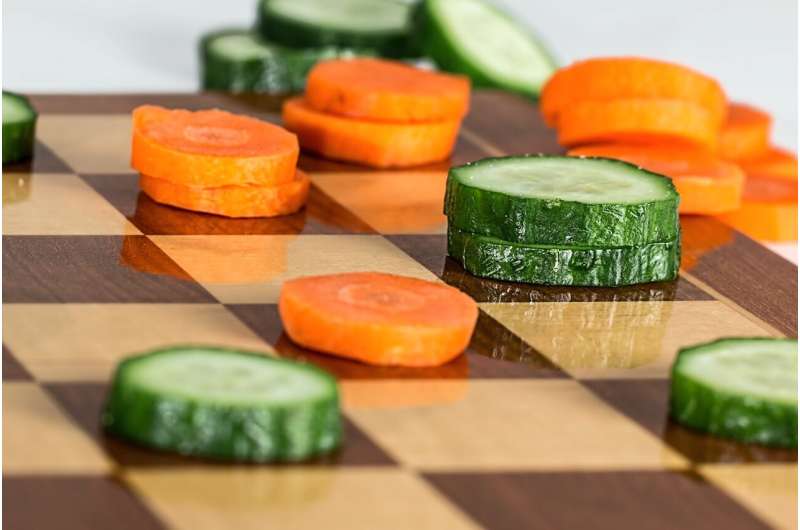Healthier supermarket layout improves customers’ food choices, study shows


New research from the University of Southampton shows that removing confectionery and other unhealthy products from checkouts and the end of nearby aisles and placing fruit and vegetables near store entrances prompts customers to make healthier food purchases.
The study, led by Dr. Christina Vogel, Principal Research Fellow in Public Health Nutrition and Janis Baird, Professor of Public Health and Epidemiology at the University’s MRC Lifecourse Epidemiology Centre, was conducted in partnership with the national supermarket chain Iceland Foods Ltd. The trial took place in a selection of Iceland stores in England and monitored store sales as well as the purchasing and dietary patterns of a sample of regular customers.
The results showed store-wide confectionery sales decreased and fruit and vegetable sales increased when non-food items and water were placed at checkouts and at the end of the opposite aisles, and an expanded fruit and vegetable section was repositioned near the store entrance. Beneficial effects were also observed for household fruit and vegetable purchasing and individual dietary quality. Full details are presented in the open-access journal PLOS Medicine from 24th August 2021.
When talking about the results of the study Dr. Vogel said “Altering the layouts of supermarkets could help people make healthier food choices and shift population diet towards the government’s dietary recommendations. The findings of our study suggest that a healthier store layout could lead to nearly 10,000 extra portions of fruit and vegetables and approximately 1,500 fewer portions of confectionery being sold on a weekly basis in each store.”
This research is more comprehensive than previous studies testing whether placement strategies can promote healthier food purchasing which have been limited in scope, for example including only a single location (i.e. checkouts) or placing healthy and unhealthy products together. This study went further, aiming to reduce customers exposure to calorie opportunities by placing non-food items at checkout and aisle-ends opposite and measuring effects on store sales, customer loyalty card purchasing patterns and the diets of more than one household member.
Matt Downes, Head of Format Development at Iceland said “We have been pleased to support this long-term study and the evaluation of how product placement in supermarkets can affect the diets of our customers. We know that childhood obesity is a growing issue and the retail industry has its part to play in tackling this. We hope that the outcomes of the study provide insights for the wider retail industry and policy makers about the impact of store merchandising on purchasing decisions.”
Source: Read Full Article